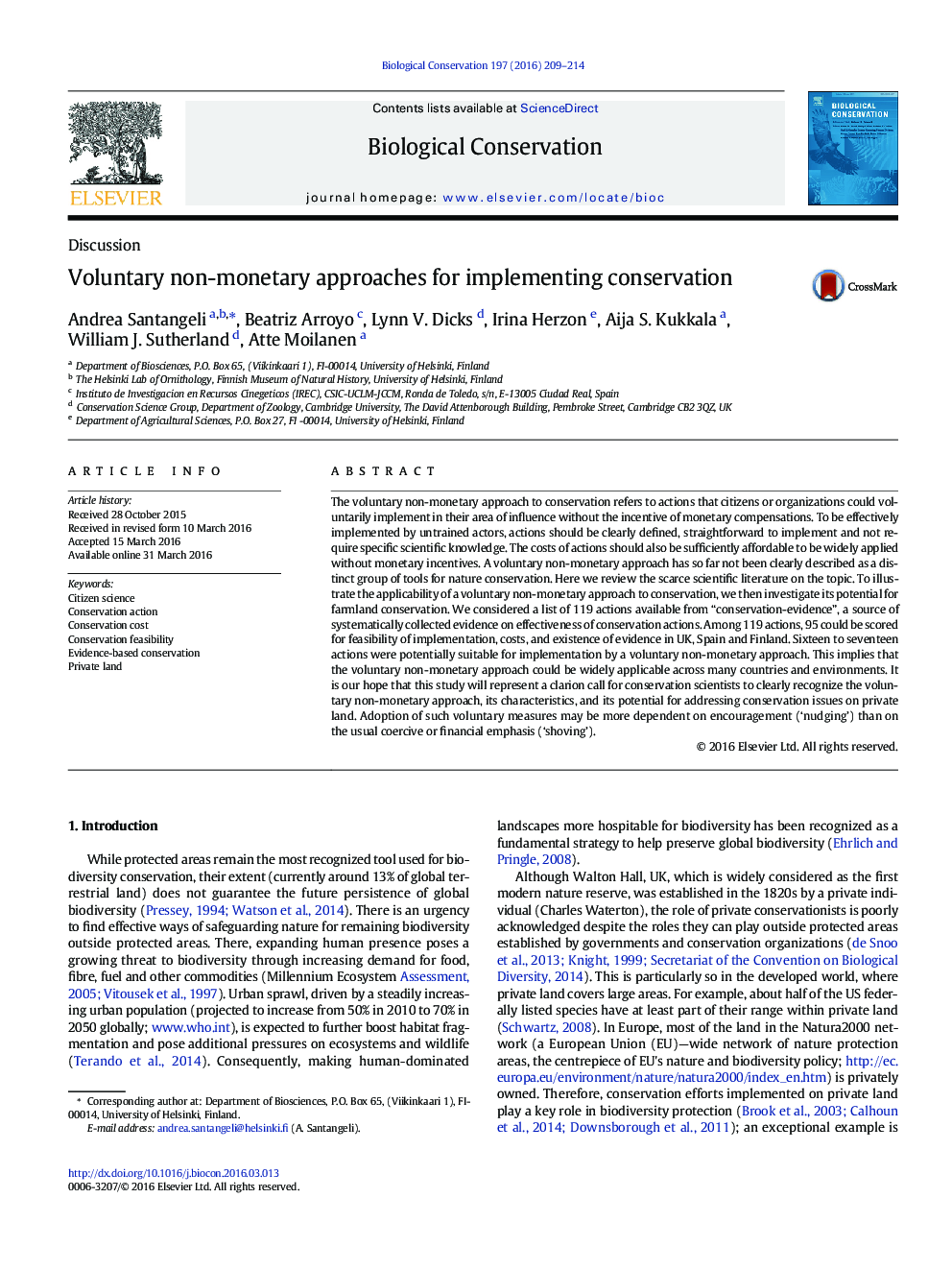| کد مقاله | کد نشریه | سال انتشار | مقاله انگلیسی | نسخه تمام متن |
|---|---|---|---|---|
| 6298447 | 1617904 | 2016 | 6 صفحه PDF | دانلود رایگان |
- We review the voluntary non-monetary approach for conservation.
- The approach applies to well defined, cheap and easy to implement actions.
- We show that such approach is often neglected in the scientific literature.
- We show a diversity of farmland conservation actions suitable for the approach.
- We urge greater consideration of this approach by conservation scientists.
The voluntary non-monetary approach to conservation refers to actions that citizens or organizations could voluntarily implement in their area of influence without the incentive of monetary compensations. To be effectively implemented by untrained actors, actions should be clearly defined, straightforward to implement and not require specific scientific knowledge. The costs of actions should also be sufficiently affordable to be widely applied without monetary incentives. A voluntary non-monetary approach has so far not been clearly described as a distinct group of tools for nature conservation. Here we review the scarce scientific literature on the topic. To illustrate the applicability of a voluntary non-monetary approach to conservation, we then investigate its potential for farmland conservation. We considered a list of 119 actions available from “conservation-evidence”, a source of systematically collected evidence on effectiveness of conservation actions. Among 119 actions, 95 could be scored for feasibility of implementation, costs, and existence of evidence in UK, Spain and Finland. Sixteen to seventeen actions were potentially suitable for implementation by a voluntary non-monetary approach. This implies that the voluntary non-monetary approach could be widely applicable across many countries and environments. It is our hope that this study will represent a clarion call for conservation scientists to clearly recognize the voluntary non-monetary approach, its characteristics, and its potential for addressing conservation issues on private land. Adoption of such voluntary measures may be more dependent on encouragement ('nudging') than on the usual coercive or financial emphasis ('shoving').
Journal: Biological Conservation - Volume 197, May 2016, Pages 209-214
